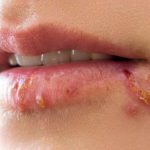
Is the consumption of sweetened beverages contributing to heightened anxiety levels? A recent 2022 study exploring the impact of the artificial sweetener aspartame on mice indicates a potential connection, prompting the need for further investigation into this possibility.
Given the green light by the US Food and Drug Administration (FDA) in 1981, aspartame has become a ubiquitous ingredient in a variety of low-calorie foods and beverages. Presently, it features in nearly 5,000 diverse products, constituting a part of the diets of both adults and children.
In an experiment, mice provided unrestricted access to water containing aspartame at a level equivalent to 15 percent of the FDA’s recommended maximum daily intake for humans tended towards heightened anxious behavior during specialized mood tests.
Remarkably, the impact was observable in the descendants of the animals, extending across up to two generations.
“What this study is showing is we need to look back at the environmental factors because what we see today is not only what’s happening today, but what happened two generations ago and maybe even longer,” said neuroscientist Pradeep Bhide, from Florida State University in the US.
The assessment of anxiety levels encompassed multiple generations of mice through a series of maze tests. Additionally, the researchers conducted RNA sequencing on crucial segments of their nervous systems to analyze the gene expression within the tissue. Notably, significant alterations were identified in the amygdala, a brain region linked to the regulation of anxiety.
Upon consumption, aspartame breaks down into aspartic acid, phenylalanine, and methanol, all of which can impact the central nervous system, as indicated by scientific research. Concerns have previously been raised about potential adverse reactions to the sweetener in certain individuals, as highlighted in existing studies.
Administration of diazepam, a drug previously marketed as Valium and widely employed to address anxiety in humans, resulted in the cessation of anxiety-like behaviors in mice across all generations. This medication assists in regulating the same neural pathways in the brain that are influenced by the effects of aspartame.
While monitoring for anxiety-like behaviors in mice provides only an approximation of similar moods in humans, the researchers noted distinct changes in animal behavior, correlating these changes with alterations in gene activity.
“It was such a robust anxiety-like trait that I don’t think any of us were anticipating we would see,” said Sara Jones, a graduate research assistant at Florida State University. “It was completely unexpected. Usually, you see subtle changes.”
This study builds upon previous research conducted by the same team, exploring the generational impacts of nicotine consumption on mouse behavior. Once again, these effects seem to be inheritable across generations, attributed to non-coding epigenetic changes in the genes of mouse sperm cells.
The team suggests a parallel scenario could be unfolding here. This implies that the potential risk extends beyond individuals who directly consume artificial sweeteners to include their children and even their grandchildren. Although the mechanism behind this phenomenon is not fully comprehended, it aligns with a growing body of evidence indicating that epigenetic markings may persist across multiple generations.
Previous examinations of the connections between aspartame and anxiety have been explored by researchers. While the association seems plausible, conflicting findings from other animal studies, such as rat studies with artificial sweeteners, indicate the need for further research to fully comprehend the dynamics at play.
Despite the ongoing debates, Jones, Bhide, and their team are advocating for caution based on these findings. Previous studies have associated artificial sweeteners with cancer and alterations in gut bacteria that can result in glucose intolerance. Now, anxiety emerges as another factor to be mindful of.
Though the findings await replication in humans, the presence of anxiety indicators in mice provides a valid rationale for further exploration.
“Extrapolation of the findings to humans suggests that aspartame consumption at doses below the FDA recommended maximum daily intake may produce neurobehavioral changes in aspartame-consuming individuals and their descendants,” wrote the researchers in their published paper in December 2022.
“Thus, the human population at risk of aspartame’s potential mental health effects may be larger than current expectations, which only include aspartame-consuming individuals.”
The study has been published in the journal PNAS.





